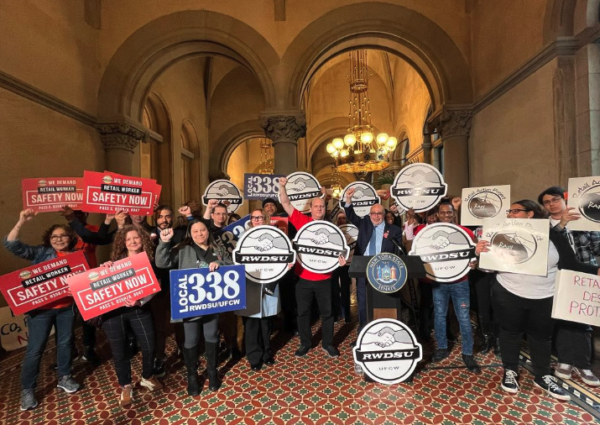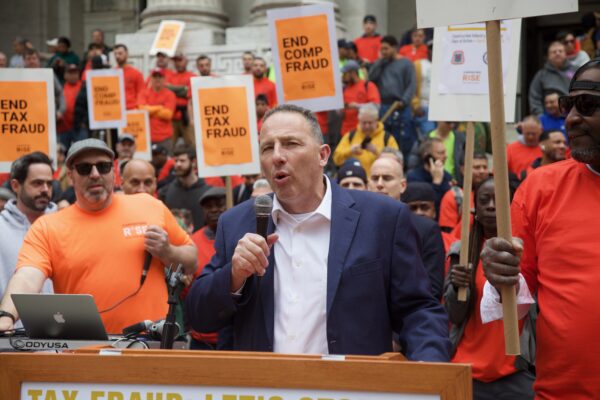AUSTIN, Texas—On Sunday, Sept. 5, the mid-afternoon temperature reached 100 degrees in South Austin, on the shadeless concrete sidewalks of South Congress Avenue, outside the Riverside Drive bus as it carried a young man with a corkscrew-cloud Afro to work pushing passengers’ wheelchairs at Austin-Bergstrom Airport. But any construction workers on the job over the Labor Day weekend could still get the 10-minute water breaks mandated by city law, and they’ll be able to continue for at least the next few weeks.
In the Texas Legislature’s special session concluded Sept. 2, its Republican majority jammed through drastic limits on voting procedures and the nation’s most draconian restrictions on abortions, despite House Democrats temporarily decamping to D.C. in an unsuccessful attempt to deny a quorum. But Senate Bill 14, which would have prohibited local governments from enacting worker protections, was blocked on procedural grounds.
The Senate passed SB 14 by an 18-11 party-line vote Aug. 11. It would have forbidden local governments to regulate benefits —defined as “anything of value that an employee receives from an employer beyond regular salary or wages” — such as paid sick leave, scheduling, or hiring practices. It would have voided any such laws already on the books, like those in Austin and Dallas that require construction contractors to give workers 10-minute breaks every four hours.
On Sept. 1, House Republicans looked likely to push the legislation through, as a succession of amendments, one of which would have exempted the water-break ordinances, went down to defeat on party-line votes. But Rep. Joe Moody (D-El Paso) raised a point of order, arguing that the bill contained elements not included in Gov. Greg Abbott’s agenda for the special session, and Speaker Dade Phelan sustained it.
A similar point of order scotched an amendment by Rep. Mayes Middleton (R-Wallisville) that would have barred local governments from deducting union dues from employees’ paychecks.
The state AFL-CIO described the events as “a crazy sequence that in a matter of minutes went from dire danger for working families to living for another day.”
But, the United Labor Legislative Committee warned on Sept. 3, “the no-celebration rule on SB 14 remains in effect, as the bill is all but certain to resurface in the next special session.”
Gov. Abbott is expected to call another special session later this year to draw congressional and legislative districts based on data from the 2020 census. Two Democratic state senators have filed a lawsuit in federal court in Austin to stop that, arguing that because the census results weren’t released until after this year’s regular session ended, the state constitution prohibits the Legislature from drawing new districts until its next session begins, in January 2023.
The governor has the power to add other measures to the agenda for the special session. Supporters of pre-emption laws argue that they help business by giving them one statewide standard to meet instead of a patchwork of varying local regulations.
State law already pre-empts local governments from raising the minimum wage above $7.25 an hour. A bill to have the state mandate 15-minute breaks for construction workers died in committee in 2017.
Texas is one of the most dangerous states to work in. In 2019, according to the AFL-CIO’s annual “Death on the Job” report released last May, 608 workers were killed or fatally injured, the highest number in 20 years. With 8.7% of the nation’s population, the Lone Star State accounted for 11.4% of its workplace deaths. Its per capita death rate jumped from 3.8 deaths per 100,000 workers in 2018 to 4.7 per 100,000 in 2019, one-third above the national rate. About 40% of the workers who lost their lives on the job were Latino.
The scary thing, the Texas AFL-CIO noted at the time, was that “all this is pre-pandemic.”



